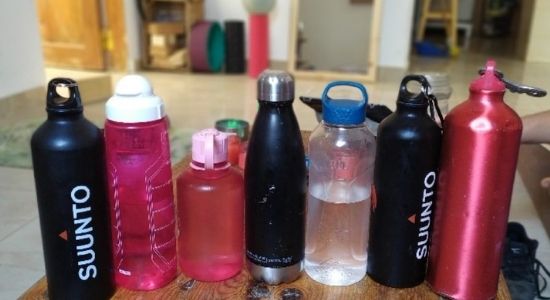Even if you have only recently been doing apnea, you certainly know how quickly you tend to become dehydrated during this activity. But what you may not know is the impact your hydration level can have on your compensation. Here are three mechanisms to consider:
- The fluidity of your mucus (sinus secrets): A large part of beginners are confronted with this problem without being aware of it! In fact, if you are not properly hydrated, your mucus (in the sinuses and at the entrance of the eustachian tubes) will be more “dry” and will be more likely to form congestion (which will not necessarily prevent you from breathing normally but which will be present). This small congestion is able to drastically increase the pressure needed to compensate for what can make things particularly uncomfortable. Conversely, if you are well hydrated, your mucus will remain fluid and even if you are slightly “cluttered” a few descents and the air movements that accompany them will help you get rid of this excess once on the surface which will make it easier for you to clear for the following dives.
- A better bloodshift/haemocompensation (pulmonary erection for intimates): the blood is composed of about 50% water (contained in the plasma), being properly hydrated will make your blood less dense, more fluid which will help promote your Blood shift. I’m not going to detail here how a good bloodshift promotes compensation but let’s say that the more air in your lungs can compress (thanks among other things to your blooshift), the better!
- Better recovery and less stress on the body: Even if it is an aspect often overlooked by us apneists, the accumulation of nitrogen in the body is a factor to be taken into account. If there are “rules” to follow: interval between dives and total depth per session, the practice of depth can generate a very specific fatigue that will be even greater with poor hydration. This physical fatigue stresses the body and can have an impact on your freshness the next day without you necessarily realizing it directly. If you then find yourself diving when you are not in your best physical shape, it may be quite “normal” that the discomfort generated by this fatigue turns into tensions that will negatively affect your compensation. Good hydration drastically reduces the effects of nitrogen absorption and your recovery will be even better: this physical freshness will necessarily result in better relaxation and therefore easier compensation.
I would like to end with what it means to hydrate properly: it is not a matter of drinking like crazy before, during and just after his session, hydration is an ongoing process that must be maintained and maintained throughout your stay (and even before very high preference!). To give you a quantitative idea on the number of litres recommended, in Dahab when you are on a training period: minimum 4 liters of water in winter and 6 liters in summer all distributed throughout the day (and not I exaggerate anything). And for the smart kids at the bottom: no coffee is not a moisturizing drink;-)

